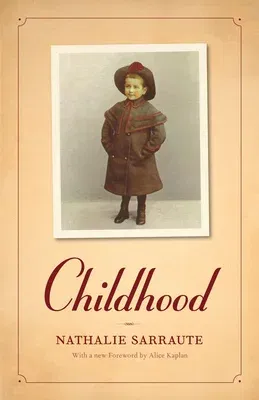As one of the leading proponents of the nouveau roman, Nathalie
Sarraute is often remembered for her novels, including The Golden
Fruits, which earned her the Prix international de litterature in 1964.
But her carefully crafted and evocative memoir Childhood may in fact
be Sarraute's most accessible and emotionally open work. Written when
the author was eighty-three years old, but dealing with only the first
twelve years of her life, Childhood is constructed as a dialogue
between Sarraute and her memory. Sarraute gently interrogates her
interlocutor in search of her own intentions, more precise accuracy, and
indeed, the truth. Her relationships with her mother in Russia and her
stepmother in Paris are especially heartbreaking: long-gone actions are
prodded and poked at by Sarraute until they yield some semblance of
fact, imbuing these maternalistic interactions with new, deeper meaning.
Each vignette is bristling with detail and shows the power of memory
through prose by turns funny, sad, and poetic. Capturing the ambience of
Paris and Russia in the earliest part of the twentieth century, while
never giving up the lyrical style of Sarraute's novels, this book has
much to offer both memoir enthusiasts and fiction lovers.

